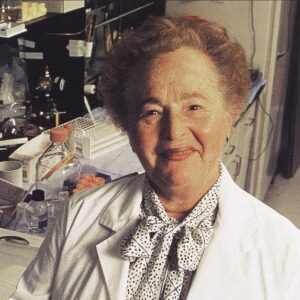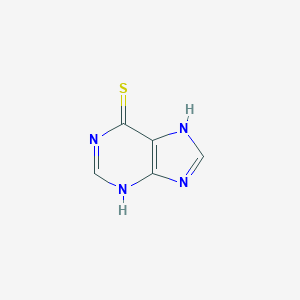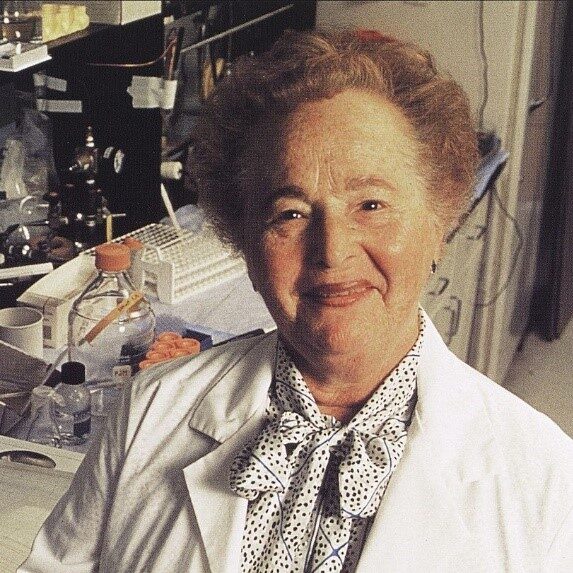During her early life, Elion was moved to New York to pursue science. She was motivated to do this by her grandfather’s death from stomach cancer. This led her to major in chemistry at Hunter College. But after having all 15 of her applications for financial aid rejected due to her gender, Elion couldn’t afford to go to graduate school to earn an MSc.

In the Great Depression jobs were hard to find, let alone jobs for women in science. Yet, Elion persevered. She worked as a biochemistry teacher, a secretary and a lab assistant to save money. She started graduate school in 1939 and also held down a high school teaching position. By the time she earned her MSc, WWII conscription meant there were more chemistry jobs available. But, it wasn’t until she became George Hitching’s assistant that she could reach her full potential.
Their work focused on nucleic acid metabolism and Elion’s main focus was purines. Her first major discovery was a leukaemia treatment called 6-mercaptopurine. It inhibited the DNA production of cancerous cells! Two of her many achievements included developing azathioprine. This immunosuppressant drug which made organ transplants possible and oversaw the development of AZT, the first drug used to treat AIDS.

From 1967 to 1983, Elion was Head of the Department of Experimental Therapy. She also held many roles within the National Cancer Institute and was involved with many societies, including the Tropical Disease Research division of the WHO. Even after her official retirement, she remained active, acting as a Scientist Emeritus and Consultant at Burroughs Wellcome (now GlaxoSmithKline) and a Research Professor of Medicine and Pharmacology at Duke University.
Elion worked tirelessly until her death in 1999. Her inspirational legacy demonstrates the power of resilience and how necessary it is if you are to succeed at making a change in the world. In the words of Gertrude herself, “Don’t be afraid of hard work. Nothing worthwhile comes easily.”
To learn about more women and non-binary people in bioscience, check out the song below!
This article was written by Stemettes Society member, Sophie S






